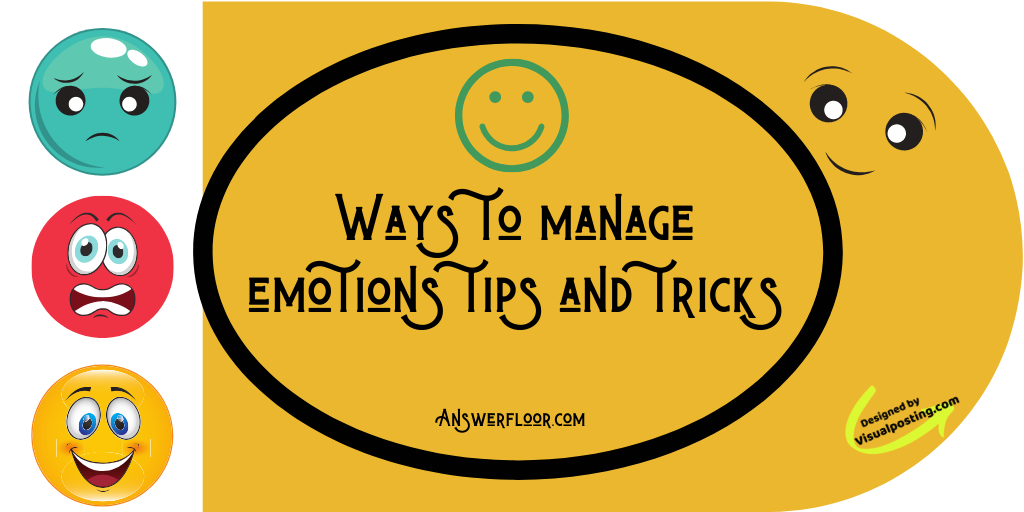
It is quite possible to take control of our actions and emotions. Emotions are a complex reaction that behaves the way we react to them. Similarly, it all depends on our perspective. If we wish to see things in a positive light, our mind believes the same. On the other hand, if negativity overpowers our minds, we tend to take things negatively. There are many ways we can manage our emotions.
8 ways to manage emotions
1. Learn why emotions are difficult to get over
2. Assign meanings to emotions
3. Don’t ignore your emotions
4. Identify the emotion
5. Ask yourself if the emotion will do you any good?
6. Remind yourself that this shall pass
7. Find the source of emotion
8. Accept the fact
There are multiple ways that you can control your emotions. Work in order to live a life of positivity and harmonies. If you feel you can’t get enough help, try talking out to people and discussing issues. Similarly, be open with your feelings. This will help you gain a new perspective. Additionally, it will help you come out of your bubble. Talk to your parents, friends, or counselor to seek advice.




